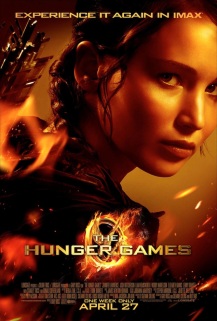Category Archives: Culture & Art
art & the prophetic imagination
On Saturday night here in Sydney TEAR Australia hosted the first of its Art of Resistance events. We had a really fantastic set of works, both visual and performance-based, which provided a wonderful witness to the prophetic power of art. (You can download the catalogue of works here.)
Here is a very rough text version of the short reflection I gave during the night’s proceedings:
—
In talking about art I don’t want to take long, since too much talking can interfere with the power of art. It’s like the story of a dancer who, having completed a dance piece, was asked what it meant. She replied that if she could explain what it meant, she would not have had to dance!
Why are we doing this? Why would an organisation like TEAR, committed to fighting poverty, bother spending time on art?
Because art is important, because art is powerful.
I think Bono said it well: Read the rest of this entry
commodifying the radical
The Olympics draw near to us, and on Australian television screens we are confronted with an advertisement for the Games featuring a truly horrifying rendition of the classic Australian ballad “Waltzing Matilda”.
The gruesome transplantation of Waltzing Matilda into a corny, overblown, adult contemporary pop song is an affront to Banjo Paterson’s work – the narration of an itinerant worker setting up bush camp by a billabong, thieving a stray sheep for food, being confronted by the police and the sheep’s ostensible owner, committing suicide and haunting said billabong.
Whatever we make of the story of this swagman, we should surely conclude that the version currently on rotation is a world away from its more radical intent.* And this is not even to mention the commercialisation of the Olympic Games…
These are merely examples of a more widespread phenomenon – the commodification of the radical. Read the rest of this entry
through the waters: unchristians as exiles & strangers
I was a slave
…..toiling under the gaze of the empire.
And I was heard by a liberator
…..led
through the waters,
through the chaos.
I was a wanderer
…..toiling under the gaze of the nations.
And I was guided by smoke and fire
…..led
through the waters
through the homelessness.
![]() I was a mother
I was a mother
…..toiling under the gaze of a king.
And I was guided by an angel
…..led
through the waters,
through the escape.
I was an exile
…..toiling under the gaze of the empire.
And I was found by a baptiser
…..led
through the waters
through the resurrection.
I am a stranger
…..toiling under the gaze of the economy.
And I was found by heaven
…..led
through the waters
through death itself.
I am unChristian
—
Dedicated to Anthony John Abbott.
MCA
bread and circuses: musings on the hunger games
 At the recommendation of a number of people I recently took up reading the Hunger Games trilogy by Suzanne Collins. Not that it was hard to convince me, I found the Hollywood film version of the first instalment enthralling.
At the recommendation of a number of people I recently took up reading the Hunger Games trilogy by Suzanne Collins. Not that it was hard to convince me, I found the Hollywood film version of the first instalment enthralling.
Now that I have finished the series I am suffering from some form of undiagnosed psychological trauma (those who have read the books will understand). Besides that, I greatly enjoyed them (though I must admit, somewhat blasphemously, that I basically never read fiction, so what would I know?).
Many opinions that I read about the books and the film criticised its depiction, and even glorification, of violence. Indeed, the books depict an annual event called the Hunger Games in which children are set against each other in a literal arena of death, forced to gorily fight for their lives until the survivors are crowned victors; terrifying mutant creatures sting and maul and torture and decapitate people; crowds of children and whole villages are firebombed by the Capitol, that is, the ruling regime and its metropolitan capital city.
But to claim that such things glorify violence is, in my view, to miss the point. Read the rest of this entry
the power of introverts
Below is a beautiful TED talk by Susan Cain about the power of introverts and their place in a changing society. Whether you are an introvert, or are an extrovert who wants to understand introverts better, have a look.
There is also a great article over at The Atlantic entitled “Caring for Your Introvert”. It is not new, but it is fantastic:
http://www.theatlantic.com/magazine/archive/2003/03/caring-for-your-introvert/2696/
MCA (INTJ)
does my guitar say anything about me?
Warning: This post is almost completely untheological. Non-guitarists may wish to click off now – you may get bored!
Guitarists, you may be deeply offended by my opinions (I know how personally we take out tastes in guitars…)
—
Some of my readers may be aware that I enjoy playing, writing and recording music. These days it’s nothing serious – I just enjoy it.
My journey through guitars is interesting, to me at least, and I wonder whether it reflects anything about me as a person.
I first started playing music at 14 when I picked up the bass. From there I added the guitar and then other instruments subsequently.
My first guitar was a cheapy, but the guitar I aspired to was the Gibson Les Paul. As a teenager there was something about this guitar that just stood out to me. Guitarists often know Les Pauls for their attitude, their fat, punchy, thick sound, and their heavy weight.
For non-guitarists who have bothered to get this far, think songs featuring Slash from Guns ‘n’ Roses, Jimmy Page from Led Zeppelin or Pete Townshend from The Who for famous and typical examples of the Les Paul sound.
The rougher edged growl of the Les Paul sound resonated with me, and so when I eventually bought one I thought I had found my perfect guitar.
But tastes change. People change. Read the rest of this entry
our time is running out: the importance & death of time
 As New Year’s passes and we enter into 2012 we find ourselves ducking and weaving to dodge the plethora of resolutions that will, by statistical accounts, mostly fall to the ground by January 20th.
As New Year’s passes and we enter into 2012 we find ourselves ducking and weaving to dodge the plethora of resolutions that will, by statistical accounts, mostly fall to the ground by January 20th.
Despite the overwhelming failure of New Year’s resolutions to affect change in our lives we continue to make them year after year. Why?
In our mind there is something special about particular times. We make resolutions on New Year’s because in our minds it is a time of new beginnings, of fresh starts. Read the rest of this entry
the mourning in moving: making spaces into places
 My wife and I are in the midst of moving home.
My wife and I are in the midst of moving home.
It is a predictably arduous undertaking, and we’ll be glad when it’s over and we are settled in our new place.
But on the other hand we feel a sense of mourning over leaving our current unit, even though we rent and do not own it.
This is not necessarily the first time I have felt this way. Any time I have moved homes in the past (only three times or so) I have felt the same way. In fact whenever I am in the geographical area of a past home I often find myself driving there and sitting out the front.
What is it about our attachment to particular places?
Why do people attach so much value to places and spaces?
Why do people, groups and religions enter conflict, even violence, over particular spaces that are deemed special, sacred or holy? Read the rest of this entry
















